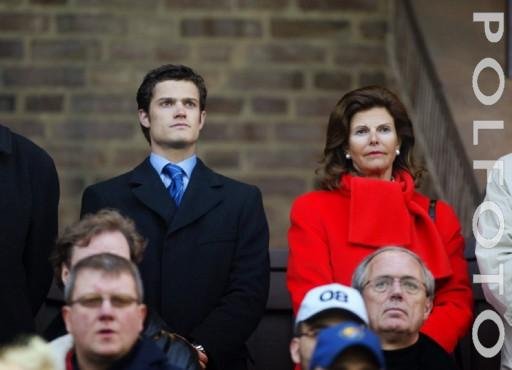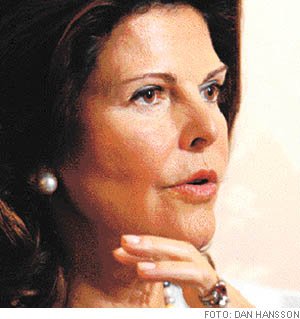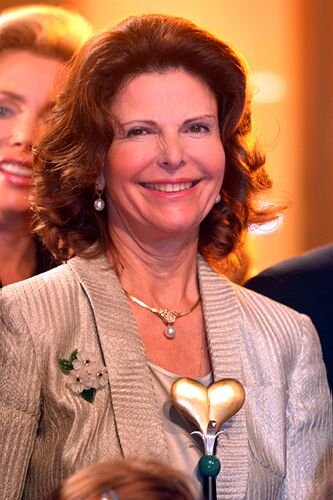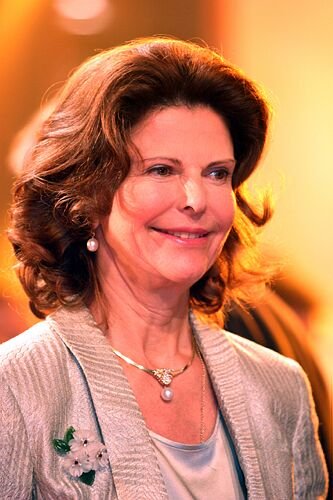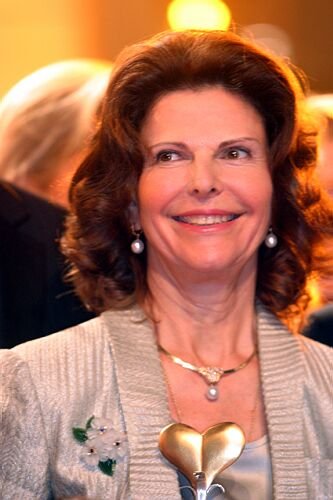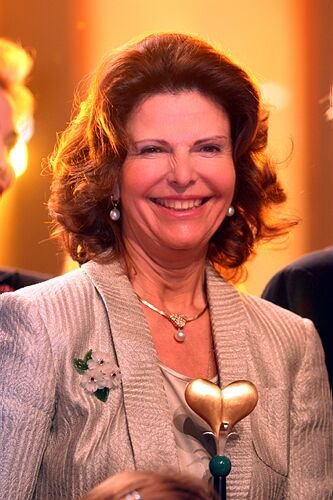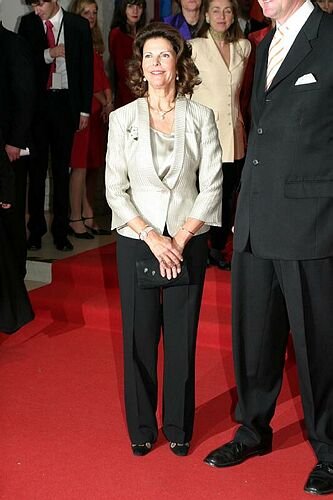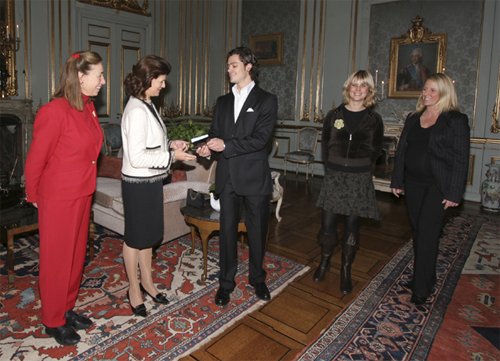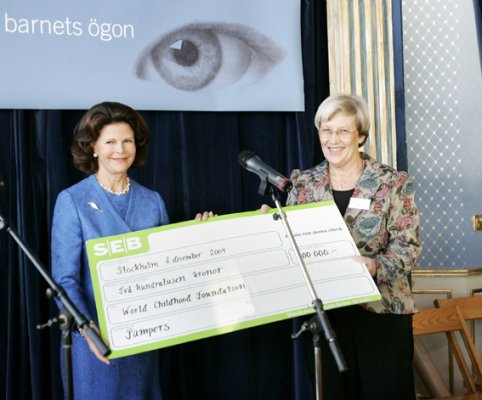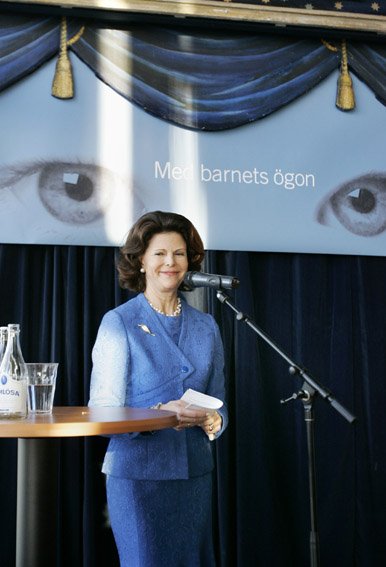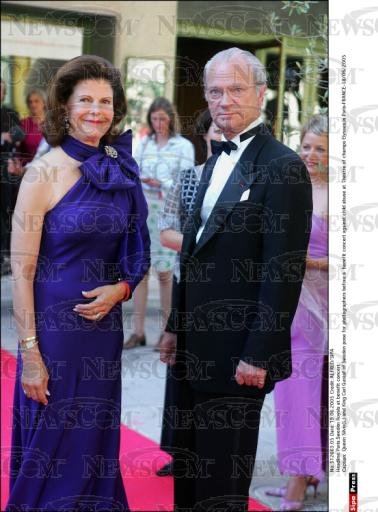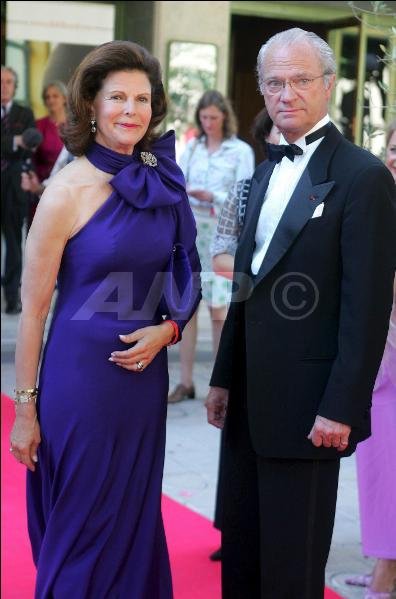Interview: Sweden's Queen Silvia on crusade against child abuse Saturday, 18 June 2005
Sexual abuse and trafficking of children are overwhelming problems worldwide, says Sweden's Queen Silvia, whose World Childhood Foundation has been helping victims of sexual violence since 1999.
"Sexual abuse is a global problem, and it's increasing," Silvia told AFP in an interview before a Paris benefit concert for her foundation.
"It's a taboo subject. It's a delicate question. But if you don't talk about it, then the children will continue suffering," she said in her office in the royal palace in central Stockholm.
Silvia, who has long worked for charity, created the foundation after repeatedly meeting with abused children during her travels.
"There came a point when I asked myself: What can I do, personally, to help these children?" she says.
She started by becoming the patron in 1996, in Sweden, of the first World Congress Against Commercial Sexual Exploitation of Children, which she calls "a very important step", coming shortly after the Dutroux pedophile scandal that shook Belgium.
"One of the good things about being queen is that you have the possibility to help and perhaps even change things for the better," she says.
The second conference, in 2001, took place in Yokohama, giving "Japan a leading role".
The World Childhood Foundation, founded in 1999, is established in Sweden, Germany, Brazil and the US. It does not run programmes itself, but supports 76 projects in 15 countries.
"We are the facilitators and I'm the mother," smiles Silvia.
The funds come from the 14 co-founders including DaimlerChrysler and SAP, and including major Swedish partners like Volvo, ICA and Vattenfall, which can enter into partnerships with the foundation.
It also relies on events like the June 19 benefit concert in Paris with the Orchestre National de France which is conductor Kurt Masur's "gift to the foundation".
Among the projects supported by the foundation are an adolescent centre in Sao Paolo, a child support centre in Estonia, a child health centre in Cape Town and a support structure for 600 juvenile inmates in a Saint Petersburg prison.
In a "babushka brigade" project in Moscow, it has helped bring abused children, homeless mothers and lonely older women together in a day care centre where they help, and learn from, each other.
Young mothers who grew up in orphanages and suffered sexual abuse often find it difficult to give their own children the love they need. "They are quite tough, and often socially and emotionally handicapped," Silvia says. "We help them to be good mothers."
In a project in Brazil, a group of girls got help to open a shop selling candles, soap and small decorated handbags, including with the accounting.
"We don't just rescue the girls, we also help them shape their future, so they don't have to prostitute themselves," she says.
Being a queen of one of the world's richest countries is no obstacle when relating to some of the least-privileged citizens of poor countries, she says.
"The children don't see me that way. They see me as a person who wants to help," she says.
The foundation has a tiny structure, employing just four to five staff each in Stockholm, New York and Brazil, but has started making a difference, Silvia says.
"There are many lights at the end of the tunnel. Many governments have changed laws to protect their children, like Japan and Australia, " she says.
But there are ever new dangers lurking, such as the Internet.
"The Internet is a wonderful thing, but it can also be a tool for the abuse of children. When your child is in front of the computer your child is in danger of being contacted by a paedophile," she says.
German-born Silvia, who became queen of Sweden when she married King Carl Gustaf in 1976, says the respectful attitude with which Swedes treat their children had reinforced her commitment.
"You treat children as a little human beings, with their own rights," she says.
June 16 2005 Agence-France Presse


